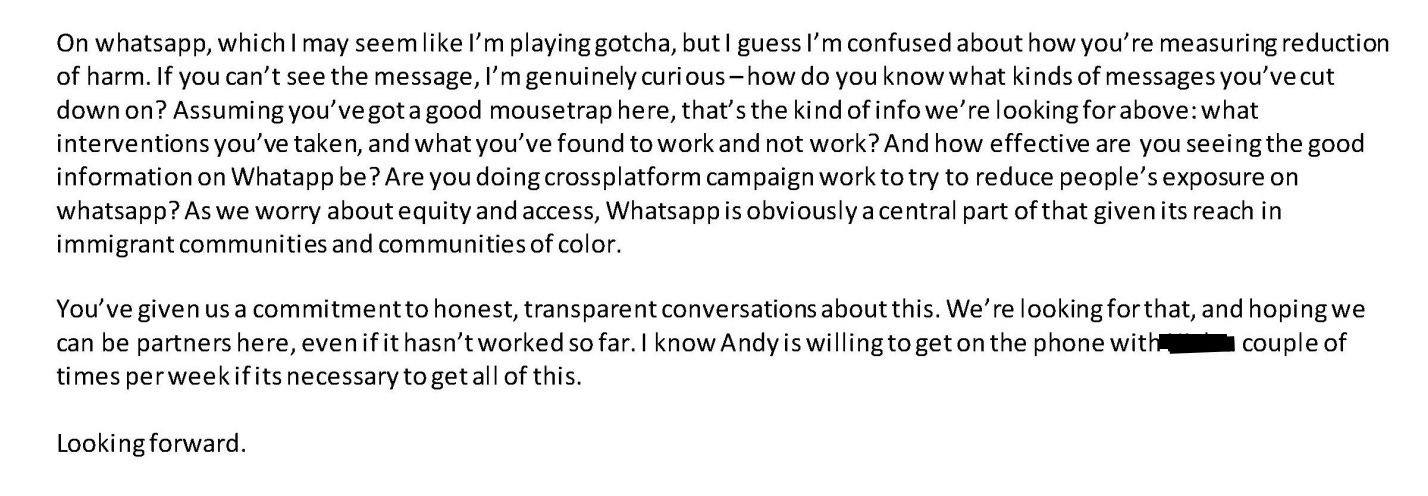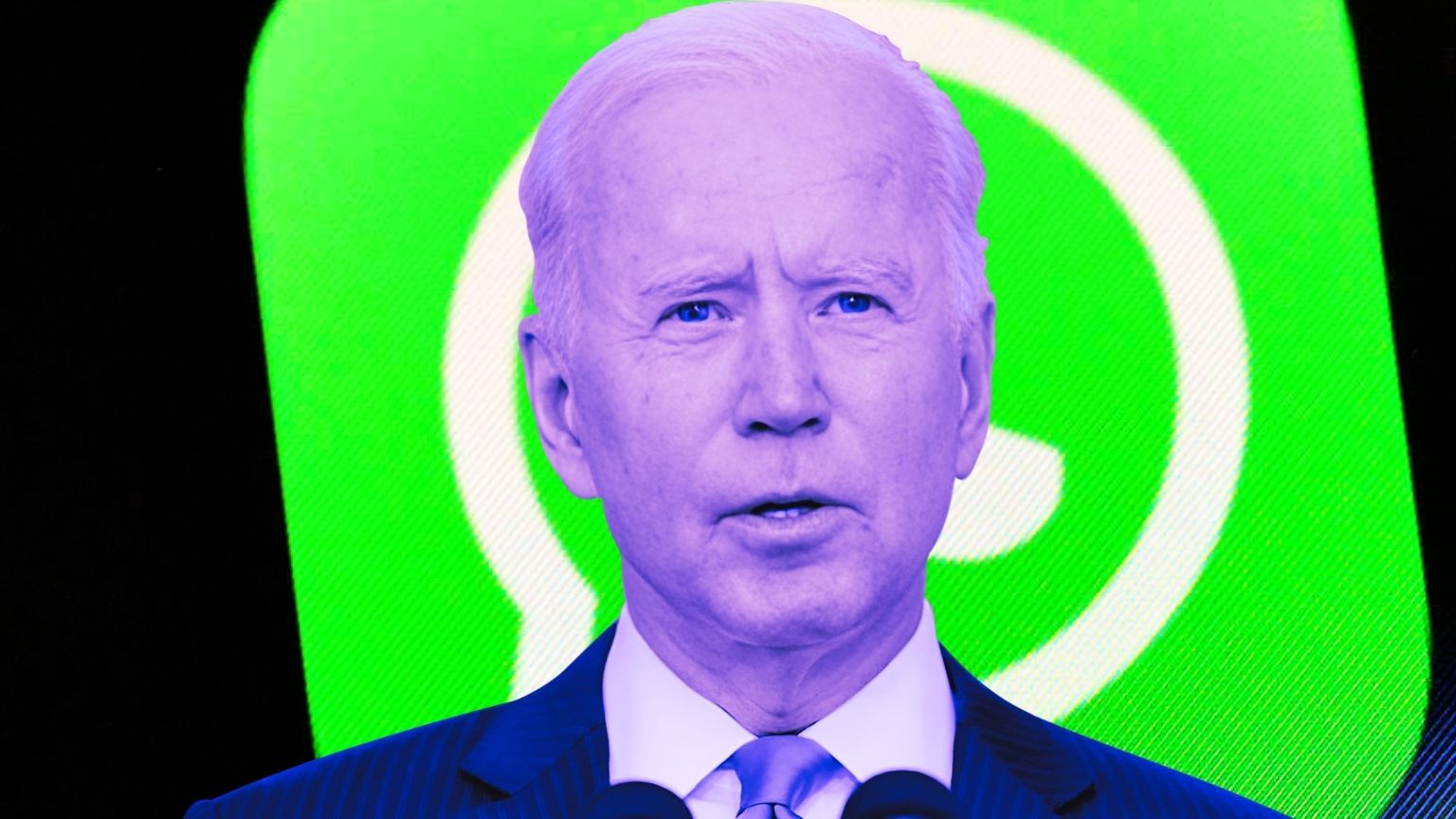The Biden administration was pushing for the censorship of COVID-related content on WhatsApp, according to communications between the White House and Meta, the company that owns the messaging platform.
This move has raised concerns about freedom of expression and the ability to communicate privately on digital platforms.
Unlike Facebook and Instagram, which are also owned by Meta, WhatsApp is an encrypted direct messaging platform that is used for private conversations between individuals or small groups. The White House has been pressing Meta executives to find ways to measure “reduction of harm” on WhatsApp, insisting that they must have a “good mousetrap” to observe what conversations are shared on the platform.
According to the report by David Zweig, who echoed Reclaim The Net’s reporting from January, the White House has also offered to work closely with Meta to curb the spread of so-called “vaccine-skeptical” content.

However, because of WhatsApp’s structure, targeted suppression or censorship of certain information is not possible. Instead, the focus of content moderation on WhatsApp has been to push information to users.
This has included partnering with the World Health Organization, UNICEF, and over 100 governments and health ministries to send COVID-19 updates and vaccine-related messages to users.
This move by the Biden administration raises concerns about the impact on freedom of expression and the ability to communicate privately on digital platforms.
With the White House pressing for content moderation on the platform, it could undermine this privacy and freedom of expression that is expected on end-to-end encrypted apps (although WhatsApp is perhaps less trusted anyway over its ties to Meta.)













